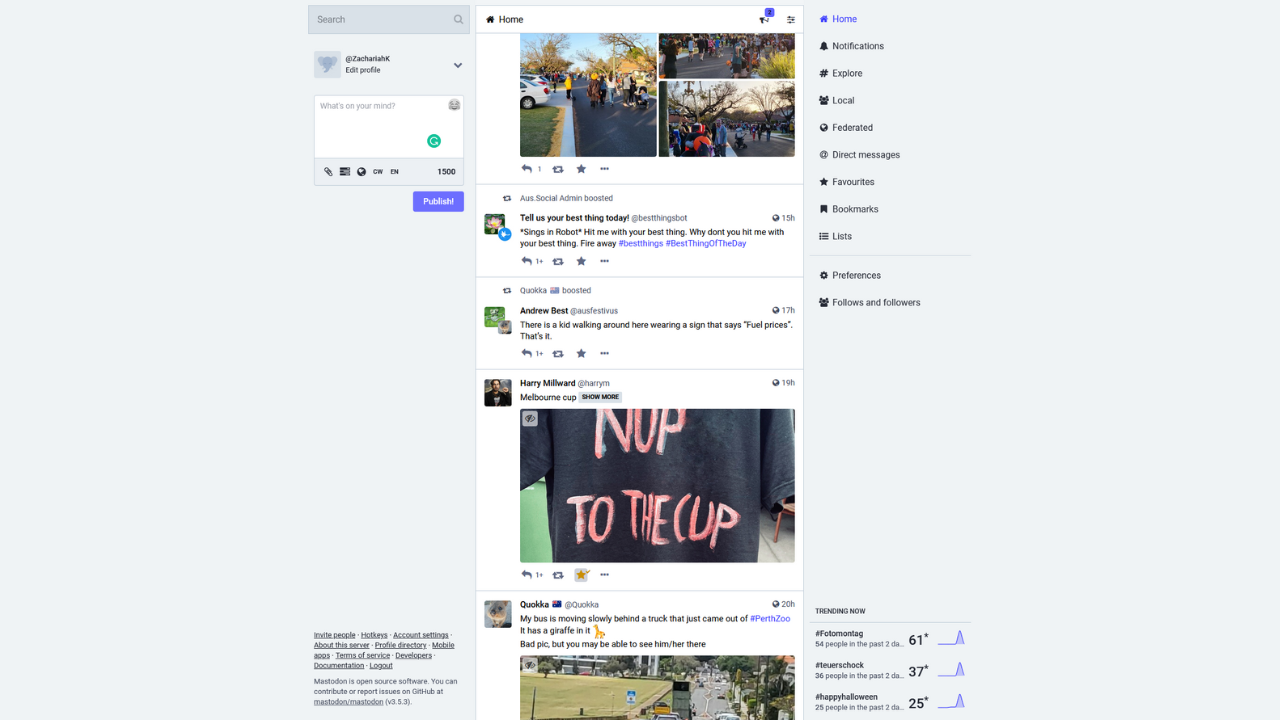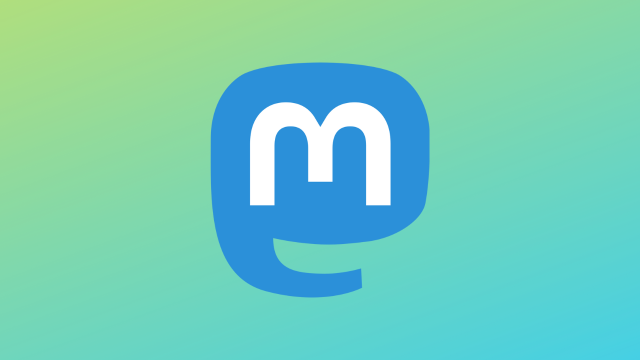With Elon Musk now ‘Chief Twit’ of Twitter, many people are looking for the door and wondering if it’s time to finally leave the bird app for good. Some have spotted Mastodon, but what is this supposed Twitter alternative?
Let’s dive into Mastodon and see if we can figure out what all the fuss is about.
What is Mastodon used for?
Mastodon is a “decentralised social media network”, made up of users in different “instances” (or servers), similar to Discord, except with discoverability as a greater focus. It’s also a metal band from Atlanta, but that’s an article for another day.
If you’re looking for something to compare Mastodon to, it’s probably best to think of it as a hybrid of Reddit, Discord and Twitter:
- Content-wise, it’s most similar to scrolling through Twitter and you can follow people and accounts in the same way
- Mastodon breaks its communities up into “instances” which take the form of domains (like mastodon.social in your URL bar), similar to subreddits and Discord
- There are also tabs for trending hashtags and news.
It also has a philosophy of creating a better, friendlier social media experience, and in 2019, when Gab migrated to Mastodon, the company took a hardline stance against the hate-filled social media site.

To be frank, it’s very similar to Twitter’s layout, but it’s also got a few more confusing things to it. It’s a social media site that needs some getting used to, but we’ve got some pointers for you.
What are Mastodon instances?
Mastodon instances factor into your account setup and become part of your username. When you’re setting up your account, you need to join a Mastodon instance, which, for example, includes “Mastodon.social” (the original Mastodon server), “aus.social” (if you live in Australia) or “botsin.space” (an instance for bots and bot allies), just to name a few. These register you to those instances, but they don’t limit the content you can view.
For example, somebody signed up on the “aus.social” instance can follow somebody on the “Mastodon.social” instance. These separate instances run their own content guidelines and rules, enforced by separate instance admins, and may have restrictions in place on what content can be posted.
As pointed out by Medium user Manga Columbo, your instance also determines your “local timeline” (the posts you see from members of your instance) and your “federated timeline” (the posts you see from members of other instances, that those in your instance are communicating with). Your instance also influences what other instances you can communicate with, if limitations have been enforced.
It’s not a particularly important point if you’re going to be engaging with the larger Mastadon site, but depending on the instance you sign up with, it could affect the content you can post. The term “federated”, for example, applies to content that can be seen across a larger network of several Mastadon instances, while the term “local” applies to content only visible to those inside your instance.
It’s important to keep in mind though that if you want to tag users in your post from other instances, you need to write out their full username, including their instance at the end (for example, @ZachariahK@aus.social, but @ZachariahK if you’re also in aus.social).
The search function is also able to scrub through every instance, in case you need to find a specific person.
Can the same account belong to multiple Mastodon instances?
No, an account can only belong to one instance, however, there’s nothing stopping you from registering new accounts across multiple instances. If you want, you can switch your instance to another Mastodon instance without losing your followers.
Who owns Mastodon?
Mastodon is owned by German engineer Eugen Rochko. He doesn’t care about money, according to a Mashable article from 2017, which is a breath of fresh air from Musk and his plans to monetize verification on Twitter.
The site is intended to be a replacement for Twitter, in Rochko’s own words, focusing on decentralisation and smaller communities, harbouring content that the person would be more interested in and reducing toxicity.
Is Mastodon a good social media?
The biggest problem with Mastodon is that it’s not very popular, which detracts from the whole “social media” aspect of it. There are not many people to be social with. That being said, it’s perfectly fine to use and you might find a nice community on the site, if a bit confusing at first.
You’re unlikely to find many of your favourite accounts from Twitter on it, or any of the brands, news sites or Twitter bots you might be used to (and no, Gizmodo Australia does not have a Mastodon), but it’s still a developing platform. We might see it grow if Twitter enters a death spiral, but for right now, it’s pretty under the radar.
Let’s see how Musk goes with Twitter.
